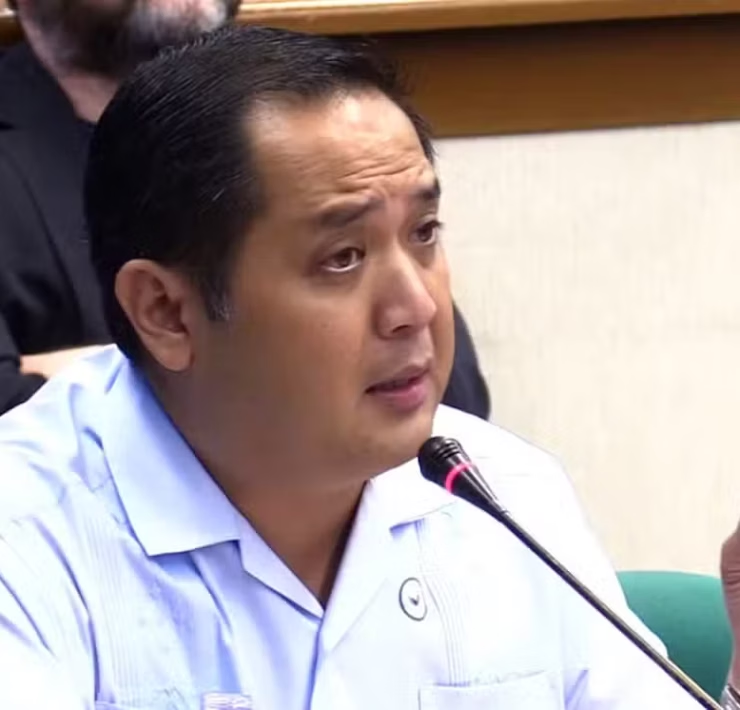Labor abuses at sea

The Philippines has signed the Manila Declaration on Seafarers’ Human Rights, Safety, and Well-being, which aims to safeguard the rights of seafarers who, like many Filipinos seeking opportunities overseas, are exposed to risks and abuses.
It was signed at the end of the three-day International Conference on Seafarers’ Human Rights, Safety and Well-being on Sept. 2, where it was revealed that many Filipino seafarers choose to suffer labor abuses in silence out of fear of losing their jobs.
“They have accepted abuses. Nobody would like to speak up …” said Captain Jasmin Labarda of the Associated Marine Officers’ and Seamen’s Union of the Philippines.
According to latest government estimates, there are approximately 800,000 Filipino seafarers; however, only about half of them are employed worldwide, accounting for 25 percent of the global seafaring population.
Some of the abuses they suffer include being abandoned while at sea after their companies have declared bankruptcy. The seafarers must then fend for themselves with limited supplies of food, fresh water, and fuel. Oftentimes, it takes months for the government to rescue them.
There are also cases where the abuse begins from the time they sign a contract with a manning agency, or a private company that recruits and links seafarers to foreign companies.
Long-overdue law
It’s a story similar to other overseas Filipino workers, where they sign up with a company for a specific job only to end up being forced to work in another vessel under harsh conditions and with lower pay. They are made to sign waivers basically freeing the company from any accountability, while others complain about their passports being confiscated and their wages being docked.
In many cases, they end up working 20 hours or longer in extremely difficult jobs they didn’t sign up for—for example, instead of a cargo ship, they get deployed to an industrial fishing vessel, and suffer physical abuse. Unfortunately, many of them return to the country either with health issues or worse, in a box.
These cases persist despite the enactment of Republic Act No. 12021 or the Magna Carta of Filipino Seafarers, which President Marcos signed in September 2024. The long-overdue law guarantees fair and timely compensation, mandatory social protections, gender equality, legal assistance, and stronger safety regulations for seafarers.
Discriminatory provision
The Concerned Seafarers of the Philippines (CSP), however, criticized the law for allegedly favoring shipping companies and manning agencies more than sea-based laborers. One of the law’s controversial provisions is the so-called execution bond, which seafarers are required to post to ensure the speedy execution of monetary petitions such as for salaries, wages, statutory benefits, and death and disability claims.
The CSP has called it a discriminatory provision because it puts a financial burden on seafarers that is not imposed on land-based workers. Other stakeholders have warned that this could promote blacklisting or “watchlisting” where seafarers are either banned from future deployment or flagged for monitoring simply because they dared submit a claim.
The government must look into the loophole that allows manning agencies or shipping companies to continue operating despite ongoing labor cases or to reopen under a different name despite suspended licenses. The lack of regulation over this practice puts more seafarers at risk—those who do not know the agency’s history would take the job opportunity, while those who are desperate for a job would ignore the risks and proceed anyway.
RA 12021 is definitely not the cure-all to seafarers’ woes—aside from ensuring its implementation, the government must review the provisions that stakeholders deemed unfair. Unless this is done, cases of abuse will continue.
Hefty contributions
The Manila Declaration, though, could strengthen protection for the sector, especially in promoting international cooperation. It has already been endorsed by Bangladesh, Germany, Malaysia, Myanmar, the Netherlands, New Zealand, Norway, Spain, and the United Kingdom.
Labor Assistant Secretary Lennard Serrano pointed out the need for “stronger coordination” among member states of the International Labor Organization to receive more reports and calls for assistance and repatriation from seafarers in distress. He said the Philippine government was sometimes “unaware” of the urgent concerns at sea; in the worst cases, it would only learn about the situation from the families of the seafarers.
In 2022, Filipino seafarers—who have kept global trade moving with their labor in oil tankers, cargo ships, and luxury liners—contributed $6.7 billion (about P340 billion in current exchange rates) to the Philippine economy. With this hefty contribution, surely, Philippine laws need more teeth to protect them from unscrupulous agencies and employers who subject them to abuse and harsh working conditions as they labor—for family and country—at sea.





















